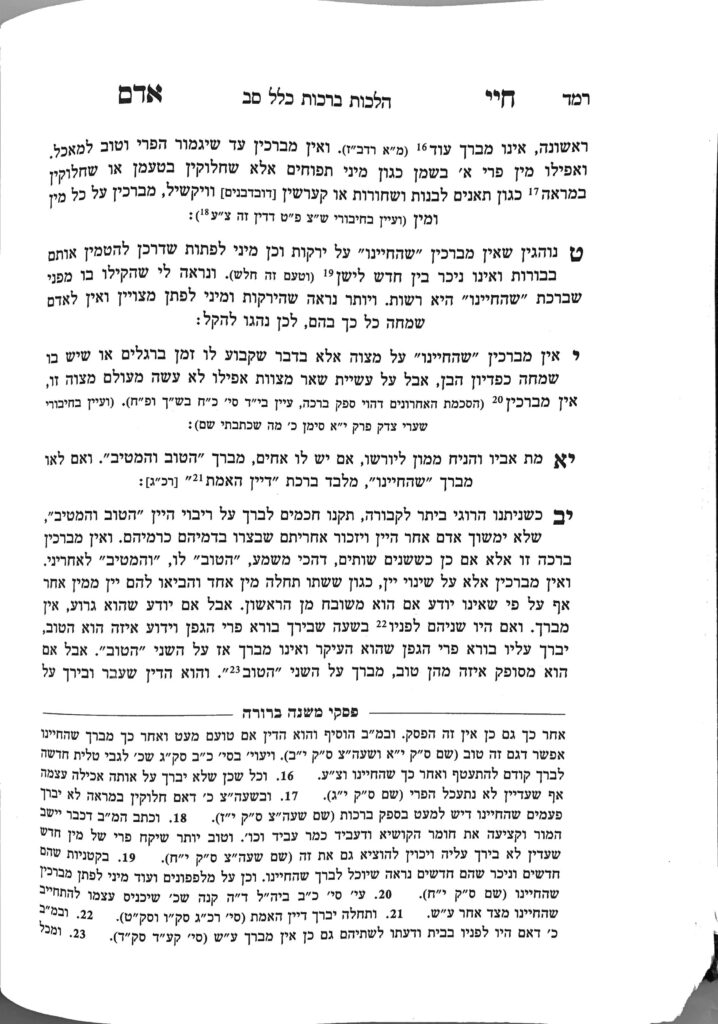We are continuing siman 12. The Chayei Adam writes that when a person knows they will have two wines during a meal, if both wines are in front of them at the time of the first bracha (borei pri hagafen), they should make the hagafen on the better wine. The Chayei Adam explains that the bracha should be made on the more chashuv item, following the general rule in hilchos brachos of making the bracha on the more chashuv item. Once the bracha has been made on the superior wine, the second wine does not receive its own bracha, so hatov vehametiv is not recited at all.
If he is not sure which wine is better, one can make the hagafen on one, and hatov vehametiv on the other.
If one makes the hagafen on the inferior wine, they can then make hatov vehametiv on the superior wine. Similarly, if a person has a reason to make hagafen on the inferior wine, they may do so, and then make hatov vehametiv on the superior wine. An application of this halacha includes making kiddush on an inferior wine because participants at the seuda do not like the other wine. In such a case, if a person were to have wine later in the meal, they would make a hatov vehametiv.
There seems to be a contradiction between two psakim of the Mishnah Berurah, and the answer to this contradiction will have important halachic implications. In footnote 22 of the piskei Mishnah Berurah on the Chayei Adam, the Mishnah Berurah is quoted as bringing the Levush, who writes that if a superior wine is available anywhere within one’s house when they make the hagafen, they do not make hatov vehametiv on the superior wine when it is brought to the table. He explains that since it was planned to be served, the simcha is not great enough to warrant making hatov vehametiv. According to the Levush, it is improbable that one would ever recite hatov vehametiv, because in most cases one is aware and planning to serve the other wine.
In the next footnote, the Mishnah Berurah is quoted as writing that if one is unsure which wine is of superior quality, one can simply remove it from the table. However, according to the previous Mishnah Berurah, removing the wine from the table does not help, because it is still in the house and one plans to serve it.
Be’ezras Hashem, we will answer this question in the following shiur, and discuss the halachic implications.
Summary
- If both wines are in front of a person at the time of the first bracha, one which is inferior and one which is superior, they should recite hagafen on the superior wine and should not recite hatov vehametiv on the second wine.
- If one makes hagafen on the inferior wine, they can recite hatov vehametiv on the superior one.
- If one is unsure which wine is superior, they can recite hagafen on one and hatov vehametiv on the second.



